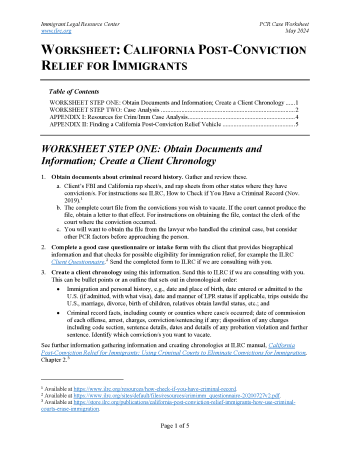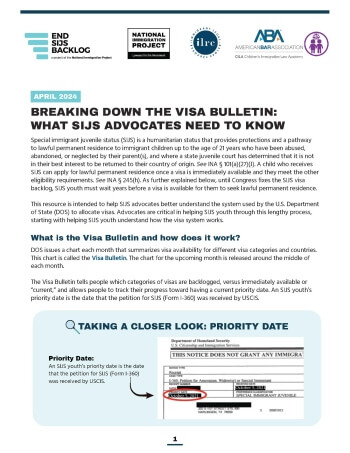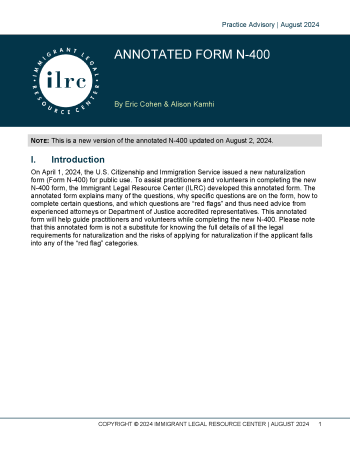If you are undocumented and have been a victim of a crime, served as a witness for law enforcement, or have been subject to human trafficking, you may be eligible to apply for certain forms of immigration status. These are known as U, T, and S visas. In most cases, the application process for these visas will require help from a law enforcement agency. This Community Explainer details how a new California law, AB 1261, aims to better protect immigrants who are applying for these forms of relief and ensure that California law enforcement agencies help them when needed.

Thousands of noncitizens in California are at risk of removal because they have criminal convictions that were unlawfully imposed. California law provides several ways to eliminate these convictions with post-conviction relief (PCR). The challenge is that there are not enough PCR experts to meet the need, especially for low-income immigrants.
Special Immigrant Juvenile Status (SIJS) provides a pathway to a green card for young people who have been “abandoned, abused, or neglected” by a parent. This Community Explainer unpacks what that means, what the SIJS key benefits are, and how one may become eligible to apply for this path to relief.
This Community Alert is a reminder for recipients of Temporary Protected Status (TPS) from El Salvador, Haiti, Honduras, Nepal, Nicaragua, and Sudan that re-registration deadlines are coming soon. Review to learn about the deadlines for each country.
Read and share our one-pager in English and Spanish to learn about the top 10 things noncitizen protestors should know before they take to the streets to exercise their rights.

This resource - created in partnership with the End SIJS Backlog Coalition, CILA, and NIPNLG - addresses common questions and myths about the visa bulletin, how to talk to clients about the SIJS backlog, and how both advocates and directly impacted young people can get involved in the Coalition’s work to end the backlog and its harms.
As of April 1, 2024, immigrant survivors of abuse, trafficking, and other crimes can now apply for certain immigration benefits for free. This Community Explainer details which survivor-based benefits are covered by the new fee exemptions, as well as other changes that may reduce financial barriers to accessing immigration benefits.
This Community Explainer details what Public Charge is, who it does and does not impact, and what immigrants should know when considering certain public benefits and their family’s immigration circumstances.
On January 31, 2024, U.S. Citizenship and Immigration Services (USCIS) released a final fee rule that will go into effect April 1, 2024. This Community Alert delves into the provisions of the new rule including increased fees, expanded fee exemptions, and changes to fee waiver policy. This downloadable guide also offers some key takeaways and resources to find support for your immigration case.
